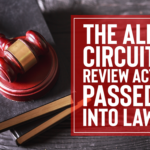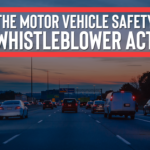If you work in the pharmaceutical world or the healthcare world, then you know that pharmaceutical companies often employ small armies of marketing representatives with large budgets to get their products on the radars of physicians. While marketing of pharmaceutical products is certainly not per se illegal, when marketing efforts veer into an area where the pharmaceutical companies or third party representatives are giving doctors, pharmacists, and others benefits in exchange for having their products prescribed, then this can enter into the illegal world of kickbacks.
And when those kickbacks are in conjunction with products and services for which the federal government is providing reimbursement – such as through Medicare and Medicaid – then such kickbacks might form the basis of a False Claims Act (FCA) claim. A person with knowledge of a kickback scheme that ultimately targets taxpayers through having doctors and others prescribe drugs in exchange for benefits can earn a substantial whistleblower reward, as much as 15% to 25% of the recovery in a successful FCA lawsuit.
Defining Kickbacks in an FCA Claim
Again, for a successful FCA claim, a plaintiff will need to show that there as some kind of action which defrauded the federal government for payment. Thus, a typical FCA claim involving pharmaceutical kickbacks would involve doctors prescribing medication for patients whose care was at least partially reimbursed through Medicare, Medicaid, or some other government-funded health program such as Tricare.
A kickback can certainly be a direct bribe by a pharmaceutical company to a doctor or other person in charge of determining what medications a person receives, but many kickback cases in recent years have involved less direct methods such as:
- Providing free seminars, lodging, and food to doctors who have prescribed drugs to patients
- Providing seminars designed to encourage off-label uses of medications (sometimes companies will create fictional companies that sponsor these seminars)
- Providing free samples to doctors, nursing, and hospitals
Pharmaceutical companies are certainly allowed to offer free gifts to medical professionals, but the key is that they must truly be “free” and not part of an implied quid pro quo or an award for having prescribed the drugs. When “gifts” are given to medical professionals who have a demonstrated record of prescribing a certain company’s drugs but not to those professionals who have not, there may be a kickback.
Work With a Whistleblower Attorney to Bring an FCA Claim
Any person with original information relating to a kickback scheme that ultimately victimizes taxpayers can bring an FCA claim and potentially win a financial reward, whether that person be a doctor, a pharmacist, a nurse, an administrator, a pharmaceutical representative, or any other party.
At Kreindler & Associates, our experienced healthcare fraud attorneys will work with you every step of the way to determine your appropriate course of action, protect you from retaliation, and collect your much-deserved reward. If you suspect that someone is committing kickback fraud, contact us today for an evaluation of your allegations.



